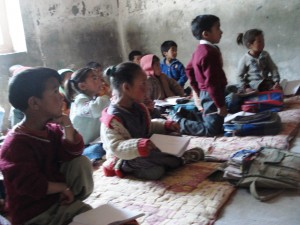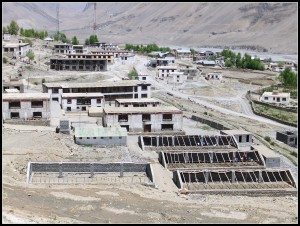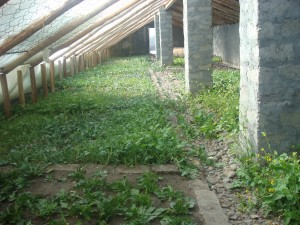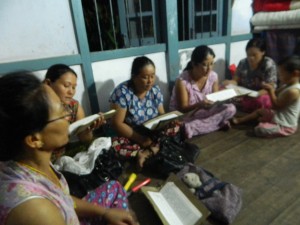Munsel-ling School Classroom Furniture Project
Project #319 – 2014
In the bitter cold of a Spiti winter, in the foothills of the Himalaya, the children are sitting in school all day on the floor. It is difficult to focus on learning when it is cold and uncomfortable.
With your help, the children have desks. Just $32 purchased a solidly built desk with built in bench. Learning will improve!
18 years ago there was no school at all for these children, and life was a perpetual round of poverty.
Enter the local Buddhist Society, whose members believed that the children from the poverty stricken villages deserved an education and that, given a chance, they would shine. TRAS has been supporting the school since its humble beginnings
The school complex is now the largest ‘village’ in the Valley and the first graduates are showing astonishing success in several fields. They are returning to serve their community as teachers, nurses, doctor, vet and engineers.
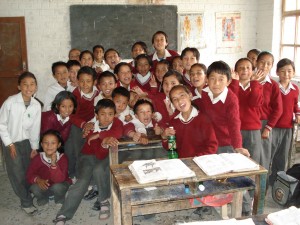
Munsel-ling School is now so successful that more villagers are begging to have their children educated there. As a result, the school has built 8 new classrooms this year. The children are currently sitting on the floors – and in the bitter cold of Spiti that is no fun.
TRAS, with the help of their donors was able to provide 150 double desks with benches, notice boards and simple supplies. None of the frills of a Canadian classroom – just the basics.
